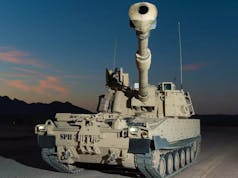“Strategic deterrence starts with nuclear capabilities because nuclear war always has been an existential threat to the nation, but deterrence in the 21st century presents new challenges and integrates new capabilities.”
The above was said by the commander of US Strategic Command said during a recent interview with DoD News at his command’s Offutt Air Force Base, Nebraska, headquarters.
Air Force Gen. John E. Hyten said his three priorities for Stratcom are simple: one, above all else provide a strategic deterrent; two, if deterrence fails provide a decisive response; and three, respond with a combat-ready force.
“It’s now a multipolar problem with many nations that have nuclear weapons and it’s also multidomain.
We have adversaries that are looking at integrating nuclear, conventional, space and cyber, all as part of a strategic deterrent. We have to think about strategic deterrence in the same way.
We can’t assume that having 1,550 deployed strategic nuclear weapons under the New START Treaty somehow deters all our adversaries. It doesn’t.
We have to think about all the domains, all the adversaries, all the capabilities, and focus our attention across the board on all of those.”
The next intercontinental ballistic missile delivers just in time to replace the Minuteman, and the Columbia nuclear submarine delivers just in time to replace the Ohio-class sub, he added.
“Any one-year delay in Columbia means the future Stratcom commander is going to be down one submarine. And any future delay in the ICBM means we’re going to be down a certain number of ICBMs.
It’s the same with the nation’s B-52 and B-2 bombers, the general said. The B-52 is an old but amazing weapon delivery platform that will have no penetration capability because of evolving penetration profiles. The B-2 is aging out and must be replaced by the B-21. The B-21 will come along just in time to provide the bomber capabilities the nation needs.
I don’t want a future Stratcom commander to ever face a day where we don’t have a safe, secure, ready and reliable nuclear deterrent. It has to be there.”











